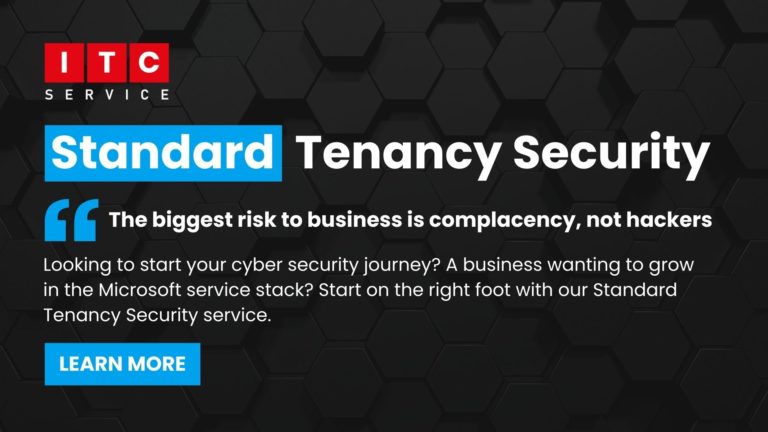What is a Server? What can they do for me, and why is server stability so important? And the ever-important question of Cloud Servers vs Local Server?
In this blog post, we will answer all of those questions and more. We’ll start with the basics – what is a server, exactly? Then we’ll move on to discuss some of the different things that servers are used for, and why having a stable server infrastructure is so critical. By the end of this post, you’ll have a better understanding of what servers are, what they can do for you, and why making sure your server infrastructure is stable should be one of your top priorities.
What is a Physical Server?
A Server is a computer that provides services to other computers on a network. Servers can be used for a variety of purposes, including file sharing, web hosting, printing, and more. What makes servers so important is their stability – unlike desktop computers, which may crash or require rebooting from time to time, servers are designed to be constantly running and providing services to other devices on the network. This makes them an essential component of any business or organization that relies on a computer network.
In addition to their stability, servers also offer a number of other benefits. For example, they can typically handle more traffic than desktop computers, making them ideal for hosting websites or file-sharing applications. Because they are designed to run constantly, they can be used as a platform for running mission-critical applications that need to be available 24/7. Which is another reason we offer 24/7 Support
What is a Cloud Server?
Cloud servers are a type of server that is hosted on a remote network often referred to as the ‘CLOUD’. This means that instead of having a physical server located in your office, you can have a server that is located off-site and accessed over the internet. Cloud servers offer many benefits, including increased flexibility and scalability. They also can be incredibly stable and offer redundancy, so if something goes wrong with your cloud server, it’s often replaced by another one before you even know it.
We consider ourselves experts in cloud servers and cloud computing and we’ve been a top tier partner of Microsoft since the inception of cloud services.
Simply put, cloud computing is the delivery of computing services – including servers, storage, databases, networking, software, analytics and intelligence – over the Internet (“the cloud”) to offer faster innovation, flexible resources and economies of scale. Typically, you only pay for cloud services you use, helping you lower your operating costs, run your infrastructure more efficiently and scale as your business needs change.”
Microsoft Azure: What Is Cloud Computing
https://azure.microsoft.com/en-gb/overview/what-is-cloud-computing/
Clearly, servers play a vital role in any computer network. If you’re responsible for managing a network, it’s important to understand everything you can about servers and how to keep them running smoothly. In the next section, we’ll take a closer look at some of the different types of servers that are available and discuss how they can be used to benefit your business or organization. Stay tuned!

The Different Types of Servers:
Now that we’ve answered the question “what is a server?”, let’s take a closer look at some of the different types of servers that are available. As you might expect, each type of server is designed for a specific purpose. Servers can have many uses, and some physical servers can have virtual servers running inside them with different functions. Sounds confusing right? Let’s break down the different types of Servers
What is a File Server?
A File Server is a computer that stores files and allows other computers to access them. This can be useful for sharing large files or folders between employees, or for backing up important data. File servers are a popular choice for small businesses and organizations.
Configuring a file server can be daunting for end-users, and most come with built-in security features that help protect your data from unauthorized access. In addition, they typically offer more storage space than traditional file servers. This makes them an ideal solution for storing large files or folders.
If you’re looking for a way to share files securely between employees or store large amounts of data, a file server may be the perfect solution for you
What is an Application Server?
An Application Server is a computer that runs specific applications and provides them to other devices on the network. This can be useful for businesses that need to access certain applications or data from multiple locations and also assists when collaboration is key.
Some examples of applications that application servers may run could be Accounting Software, CNC machining software, CRM tools, and even email services like Microsoft Exchange. By using an application server, businesses can centralize their computing resources and improve efficiency.
If you’re looking for a way to run specific applications from multiple locations, an application server may be right for you. Contact us today to learn more about our selection of application servers and how they can benefit your business.

What are Web Servers?
A Web Server is a computer that stores web pages and serves them to other computers on the network and beyond. This can be useful for businesses that need to host a website or provide access to files from multiple locations.
Web servers are typically configured to provide a specific type of service, such as email or database management. They can also be used to store files or host websites. By using a web server, businesses can centralize their computing resources and improve efficiency.
If you’re looking for a way to host a website or provide access to files from multiple locations, a web server may be right for you. Contact us today to learn more about our selection of web development services and how they can benefit your business.
What are Print Servers?
A Print Server is a computer that allows multiple users to print documents to a single or often many printers. This can be useful for businesses that need to share a printing facility between multiple employees and sometimes even networks.
Print servers are typically configured to manage printing requests in cases where there may be many ongoing operations at one time. This is because the print server manages the queue in such an efficient way. Ensuring the file gets delivered to the machine that is best suited for the job. such as email or database management. They can also be used to store files for future reference, making them a ‘staple’ in their printing activities – pardon the pun.
If you need a way to share multiple printers between multiple employees, a print server may be the right solution for you. Contact us today to learn more about how we can give you IT Support for any of your technological needs

What is a Remote Desktop Server?
This one is a deep topic! One we consider ourselves experts in. Remote Desktop Servers allow employees to access their work computer from home or on the go. This can be useful for businesses that need to provide remote access to their data or applications.
What are Remote Desktop Servers?
Remote Desktop Servers, often referred to as RDS servers, are computers that allow employees to access their work computer from home or on the go. This can be useful for businesses that need to provide remote access to their data or applications.
How do Remote Desktop Servers work?
Remote Desktop Servers work by allowing employees to connect to them remotely. This can be done by using a special software program installed on the employee’s computer, or by using a web browser. Once connected, employees can access their work computer as if they were sitting in front of it.
Why use Remote Desktop Servers?
There are many reasons why businesses might want to use Remote Desktop Servers. Some of the most common reasons include:
– Increased Productivity: Employees can work from home or on the go, which can increase productivity.
– Reduced Costs: By allowing employees to work from home, businesses can save money on office space and equipment.
– Greater Flexibility: Remote Desktop Servers offer businesses greater flexibility when it comes to their workforce.
If you’re looking for a way to provide remote access to your data or applications, a Remote Desktop Server may be right for you. Contact us today to learn more about our selection of Remote Desktop Servers and how they can benefit your business. Thanks for reading! ORRR If you’re looking for a way for your employees to access their work computer from anywhere, a Remote Desktop Server may be right for you. Contact us today to learn more about our selection of Remote Desktop Servers and how they can benefit your business. Thanks for reading!
If you’re a tech-savvy person and interested in how we utilise Cloud Services for Remote Desktops, read our article on Microsoft Azure:
Cloud Server vs Local Server
Choosing whether to build your core business IT infrastructure in the cloud or purchase expensive server hardware to host systems locally is no easy task. Here are some pros and cons that we believe may assist you in making your decision. As mentioned several times in this article. It’s always worth consulting an IT Professional so please don’t hesitate to get in contact with us

Cloud Server Pros:
- Easy Maintenance & Upgrades
- Data stored offsite. Keeping your valuable data assets safe.
- Easy adjustment of storage space and power
- Accessible wherever there is internet access
Cloud servers are a great option for businesses that need to access their data or applications from multiple locations. They offer many advantages over traditional local servers, including maintenance and upgrades, easy adjustment of storage space, and the ability to store data remotely. Cloud servers can also be accessed wherever there is internet access, making them a versatile solution for businesses of all sizes. If you’re looking for a way to take your business to the next level, a cloud server may be right for you.
Cloud Server Cons:
- Cannot access data without the internet
- If you have a poor internet connection, the experience may be limited
- It is sometimes complex to understand and a trained server architect is required
There are some disadvantages to using cloud servers. One of the biggest disadvantages is that you cannot access data without the internet. This means that if you have a poor internet connection, the experience may be limited. Additionally, it is sometimes complex to understand and a trained server architect is required.
The advantages of using cloud servers often outweigh the disadvantages for businesses that need to take their business to the next level. Contact us today to learn more about how our cloud services can benefit your business.
Local Server Pros:
- Peace of mind that YOU have control over your data
- Faster Upload and Download Speed
- Not required to have an internet connection to access data
Local servers offer some advantages over cloud servers, including the peace of mind that comes with knowing you have control over your data, faster upload and download speeds, and the ability to access data without an internet connection. If you’re looking for a way to keep your valuable data assets safe and secure, a local server may be right for you
Local Server Cons:
- The hardware required for a local server is expensive
- A local server will require maintenance
- Installation and setup is complex
There are some disadvantages to using local servers. One of the biggest disadvantages is that the hardware required for a local server can be expensive – and as will be the maintenance. Purchasing and setting up a local server for your business is hardly an easy feat. That’s why companies choose to work with an IT Support Partner like ITC. Who will assist in the setup and maintenance of the server, as well as the purchasing of the perfect equipment for your needs?
The advantages of using cloud servers often outweigh the disadvantages for businesses that need to take their business to the next level. Contact us today to learn more about how our cloud services can benefit your business.

In Summary
Servers are an important part of any business and should be chosen carefully. The type of server you need depends on the functions your business needs it to perform. Cloud servers offer many advantages over traditional local servers, while local servers have some benefits that cloud servers do not. ITC can help you decide which type of server is best for your business. Contact us today to learn more about our IT Service and Support options and how we can help you take your business to the next level.
Contact Us – We’d be happy to help!
FAQs Related to this topic
What is a Blade Server?
A blade server is a type of server that is housed in a chassis, which contains multiple blade servers. Blade servers are designed for high-density computing and can be used for a variety of purposes, such as web hosting or database management. One advantage of using blade servers is that they take up less space than traditional servers. Additionally, blade servers are typically more energy-efficient than other types of servers. If you’re looking for a high-density computing solution, a blade server may be right for you.
What is a Virtual Server?
A virtual server is a type of server that uses software to mimic the functions of a physical server. Virtual servers are often used in order to save space, as they can be housed on a single physical server. Additionally, virtual servers can be created and destroyed quickly and easily, which makes them ideal for businesses that need to scale their operations up or down quickly.
What is a Cloud Server?
hat is the cloud? In short, the cloud is a network of servers that are used to store and manage data. Cloud servers are a type of server that are housed in a remote location and accessed via the Internet. Cloud servers are often used by businesses who need to be able to quickly scale their operations up or down. Additionally, they can be useful for businesses that want to reduce their hardware costs.
Does my business need a server?
Most businesses will benefit from having a server with the exception of sole traders. Certainly when there are more than two or three colleagues in a business a server to enable file sharing would make a lot of sense. Remember a server can do much more than simply store data it can help manage your business.












